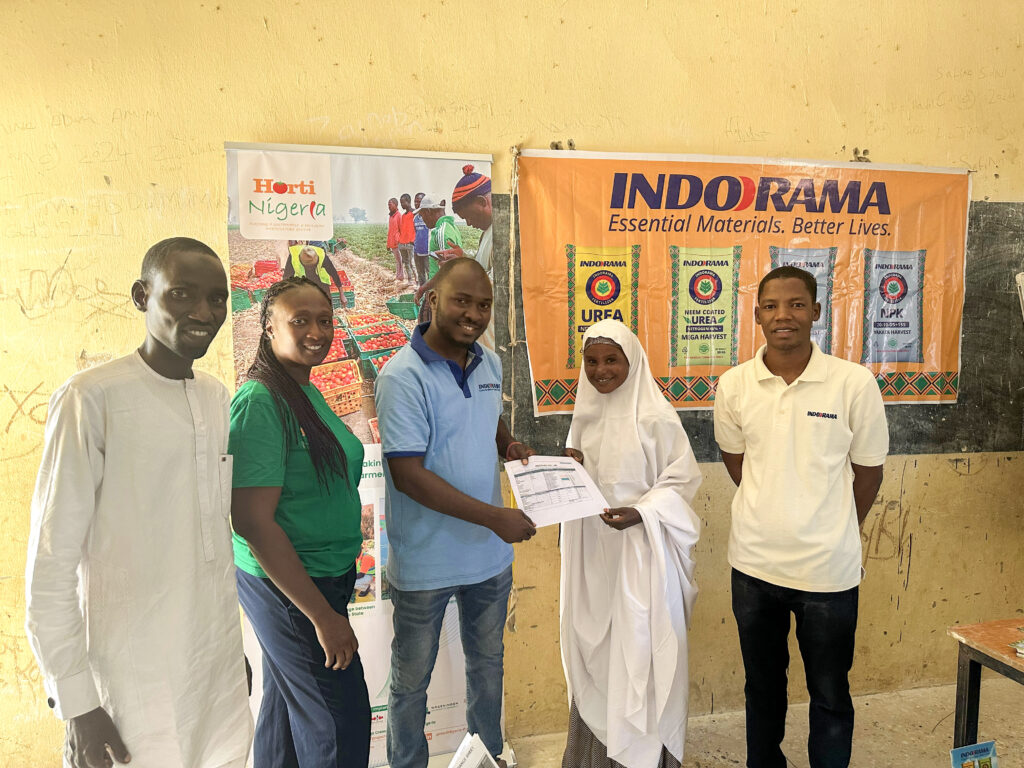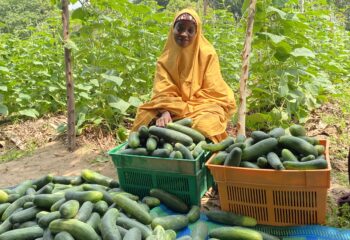
In Kano State, Nigeria, 60 female farmers from four local government areas—Dawakin Tofa, Kumbotso, Minjibir, and Rimin Gado—are taking significant steps toward climate resilience and agricultural sustainability. Through a collaboration between HortiNigeria and Indorama Eleme Fertilizer and Chemicals Limited, these women now have access to critical insights into the health of their soils. This information has the potential to transform their farming practices, enhance their productivity, and improve their livelihoods.
The soil samples collected from these farmers’ fields underwent a rigorous analysis, revealing important details about nutrient deficiencies and soil fertility. With this data in hand, the farmers are now better equipped to make informed decisions about the type and amount of fertilizers needed, enabling them to maximize yields while protecting the environment.
However, the journey toward sustainable farming doesn’t end there. A dedicated field officer from Indorama held a meeting with farmers to discuss the results. During the session, participants received personalized soil health scorecards, which broke down the complex scientific findings into actionable insights. This grassroots approach ensures that every farmer understands how to apply the recommendations effectively to boost productivity and minimize costs.
Behind the technical process are real stories of determination and growth. These women—mothers, smallholder farmers, and community leaders—rely on their farms to provide food, nutrition, and income for their families.
“Before this, we just guessed what our soil needed. Now, I know exactly what to do.”
Ramlat Umar, a farmer from Kumbotso
Ramlat’s story shows the transformative power of accurate information. For her and many others, this initiative has not only enhanced productivity but also built confidence, fostering resilience in these female farmers who are at the forefront of food production in their communities.
Healthy soils are the foundation of sustainable agriculture. By addressing nutrient deficiencies and adopting targeted fertilizer application, farmers can improve their crop yields, increase their income, and preserve natural resources. These practices reduce waste, optimize resource use, and minimize environmental harm, contributing to Nigeria’s long-term agricultural goals and food security in the country.
This initiative represents more than just a scientific exercise—it is an effort to empower women and build resilience in Nigeria’s agriculture sector. Through this partnership, HortiNigeria and Indorama are creating a pathway to healthier soils, stronger communities, and sustainable harvests.
Moving forward, we must remember that sustainable agriculture begins with knowledge and collaboration. By empowering farmers with actionable insights, we are building a brighter, more resilient future—one farmer at a time.
The HortiNigeria program (2021-2025), funded by the Embassy of the Kingdom of the Netherlands in Nigeria, aims to facilitate the development of a sustainable and inclusive horticulture sector that contributes to food and nutrition security in Nigeria. HortiNigeria is led by IFDC and implemented together with KIT Institute, Wageningen University and Research, and East-West Seed Knowledge Transfer Foundation.




